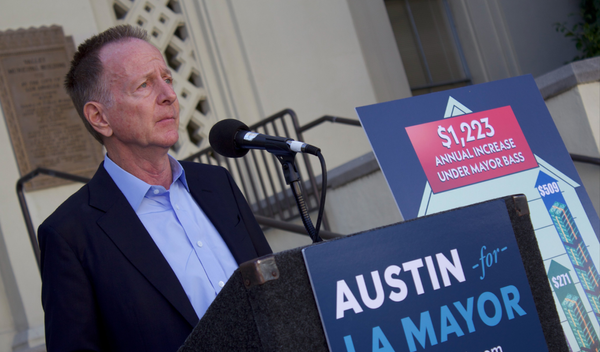
On Friday morning an email was sent by the Garrick club’s chairman to all 1,500 members informing them that the club was “urgently considering” new legal advice indicating that its rules already permitted the admission of women as members.
Christopher Kirker, the club chairman, wrote: “We are all obviously very concerned about the Club’s current situation after a week of very unpleasant publicity which we all deplore.” The club’s committee would be considering the new advice with its solicitors, he added, and would contact members again on 4 April.
He urged members not to make any public comment on the situation, and also expressed a wish that people who were “considering their future in the club” to wait for the outcome of the meeting before resigning.
“We are aware that there are strong views. But let us not be hasty. All is being carefully considered,” he wrote.
Despite the chair’s plea for discretion, there was no shortage of club members who were happy to share their views on this latest twist in an eventful week within the club’s heavy grey stone building in central London.
“Not be hasty? It’s beyond satire. Members have been discussing whether women should join for over 50 years,” a member of the clergy who joined the Garrick around the turn of the century said, who (like all members interviewed) asked not to be named.
Things had reached a turning point in attitudes towards women within the club, he said. “Many people here still believe it’s a man’s world, that men can still call the shots – there is this psychological assumption that nothing really has changed. But the resistance is crumbling. It feels like 1989 when chunks started to be knocked out of the Berlin Wall,” he said.
Free newspapers are available around the club, mostly the Financial Times and the Times; only a couple of copies of the Guardian are usually on display in an upstairs room. However, most were aware of this newspaper’s publication of a list of over 60 influential people with high-profile jobs named in the club’s list of members.
The publication triggered embarrassment among some and irritation among others. “When the Garrick was founded in 1831, there were no women to be seen in important roles in public life, but that’s obviously changed, and some members are finally asking: what on earth do we think we’re doing by continuing to pretend that men are in charge?” the clergyman said.
He was in one of the club’s dining rooms on Wednesday afternoon when the Guardian published news that first Richard Moore, the MI6 head, and then Simon Case, the head of the civil service, had decided to resign from the club, despite having both indicated less than 24 hours earlier that they planned to stay in order to orchestrate reform from within.
He said news moved through the club “like a viral murmur,” but prompted only muted conversations. “It would be very unGarrick to form groups to discuss it; we might go out for a smoke on the veranda and talk about it there a bit. Staff are scrupulously not mentioning the subject, presumably under orders,” he said. “A lot of people are just so bored with hearing about women. It’s the subject that dare not speak its name in the bar.”
Public reactions to the debate split pretty cleanly on gender lines. Boris Johnson, the former prime minister, defended the Garrick, of which he was once a member and where his father, Stanley, remains a member, and criticised the pressure that caused the resignations of Moore, Case and the former head of the Office for Budget Responsibility Sir Robert Chote. He wrote in the Daily Mail: “Come on, guys, what happened to you? It’s always sad when people give in to bullies, but there was something particularly tragic about the Garrick Three.”
Ben Wallace, the former defence secretary, said: “I just wish people would all be left alone. If a lot of men want to get together and have a club – it’s up to them.”
But Andrea Leadsom, a health minister, had a more acute understanding of why the publication of the list had prompted so much anger. She thought it was “extraordinary” that the cabinet secretary had “only just discovered” the club excluded women.
“It’s been open for about 200 years and I think it’s never accepted women so I wouldn’t want to join a club that for 200 years – since it started – hasn’t accepted women.”
‘Powerful establishment cabal’
Some members were flattered by the wide curiosity shown by the media in the club’s affairs, with one saying he felt delighted to show his wife that he was “a member of a powerful establishment cabal”.
Other members were angry with the coverage of the club’s resistance to female members, displaying limited awareness of the fury felt by women in the civil service that prompted the resignations of Case and Moore.
“It’s depressing because it makes the club toxic. It’s supposed to be a club where you can meet some of the most interesting people of your time and in due course that will inevitably include also women but right now there’s a whole swathe of people who will never dream of joining the Garrick because of this stupid toxic issue,” a relatively young member (which in Garrick terms means someone under 60) said.
Some proponents of reform were drawing up lists of women who they hoped to propose as members as soon as the rules changed, with names such as JK Rowling and Helen Mirren discussed, but it was unclear that either women would have any interest in joining.
The clergyman said the significance of the no female members rule had not been “on his radar” when he joined the club two decades ago. “After a while it did begin to feel a bit odd,” he acknowledged. “I did start wondering: why have we not got women members? Clubland has changed beyond all recognition, as has the rest of the world. It feels misogynistic now. A lot of it is old boys’ public school stuff.”







